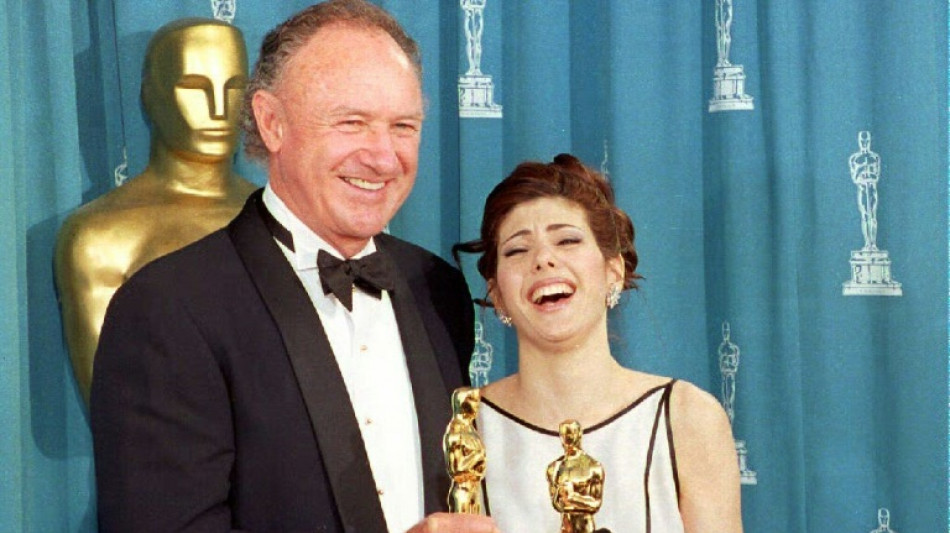
-
 German defence giant Rheinmetall to take over warship maker
German defence giant Rheinmetall to take over warship maker
-
Arab, Muslim leaders hold emergency talks after Israel's Qatar attack
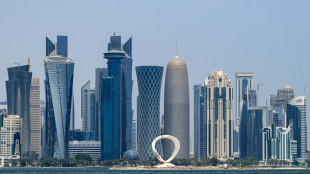
-
 Markets mixed ahead of expected US rate cut
Markets mixed ahead of expected US rate cut
-
Rubio takes up Qatar strike unease with Netanyahu

-
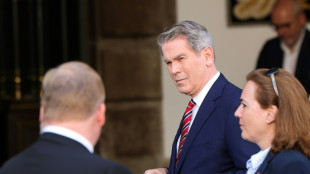 US-China trade talks resume in Madrid
US-China trade talks resume in Madrid
-
Gaza aid flotilla carrying Greta Thunberg departs Tunisia

-
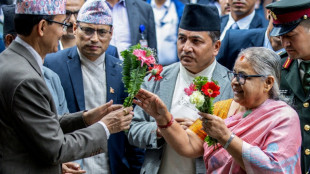 New Nepal interim ministers sworn in after protests
New Nepal interim ministers sworn in after protests
-
Cluster bombs kill, wound over 1,200 in Ukraine since 2022: monitor
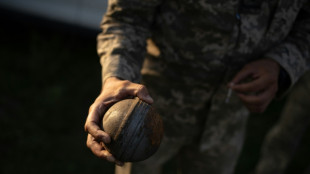
-
 Australia, Papua New Guinea to sign 'historic' defence deal
Australia, Papua New Guinea to sign 'historic' defence deal
-
Myanmar junta says no voting in dozens of constituencies
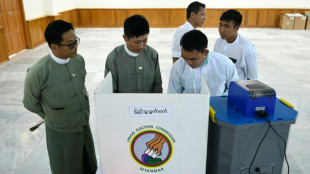
-
 Rubio to discuss Qatar aftermath, Gaza with Netanyahu
Rubio to discuss Qatar aftermath, Gaza with Netanyahu
-
Chinese factory, consumer activity slow amid economy struggles

-
 US cuts leave Zimbabwe sex workers scrambling for alternatives
US cuts leave Zimbabwe sex workers scrambling for alternatives
-
Alonso's Real Madrid revitalised for new Champions League mission
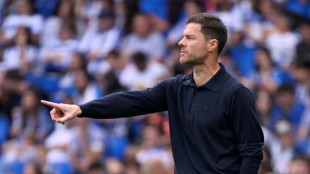
-
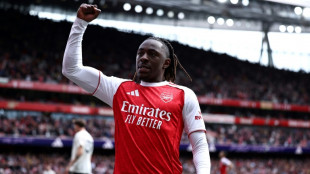 Arsenal eye Champions League charge with revamped attack
Arsenal eye Champions League charge with revamped attack
-
'No regrets': wounded Nepali protesters proud at change
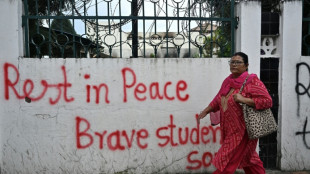
-
 Key Emmys moments: Children, Colbert, women and politics
Key Emmys moments: Children, Colbert, women and politics
-
'No regrets': wounded Nepalis protesters proud at change
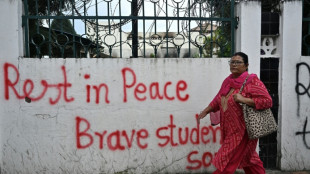
-
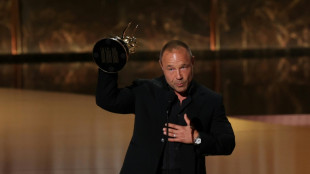 'Adolescence,' 'The Studio' dominate television's Emmy Awards
'Adolescence,' 'The Studio' dominate television's Emmy Awards
-
WTO fishing deal: the net results

-
 Malaysia's largest island state aims to be region's 'green battery'
Malaysia's largest island state aims to be region's 'green battery'
-
Philippines president says corruption scandal protests justified
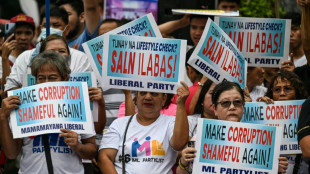
-
 Asian markets fluctuate ahead of expected US rate cut
Asian markets fluctuate ahead of expected US rate cut
-
UK aristocrat, partner face jail over baby daughter's death
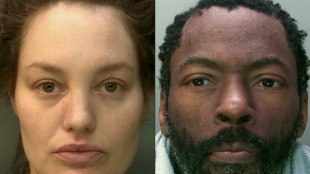
-
 Japan and Fiji cruise into Pacific Nations Cup rugby final rematch
Japan and Fiji cruise into Pacific Nations Cup rugby final rematch
-
As King Charles hosts Trump, what do UK state visits entail?
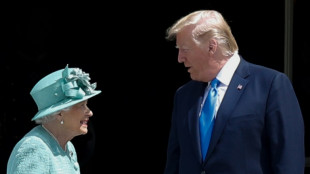
-
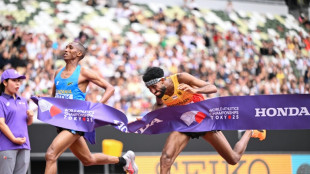 First-ever Tanzanian gold as Simbu dips past Petros in world marathon
First-ever Tanzanian gold as Simbu dips past Petros in world marathon
-
100 days later, US federal workers navigate post-Musk wreckage
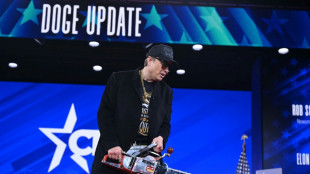
-
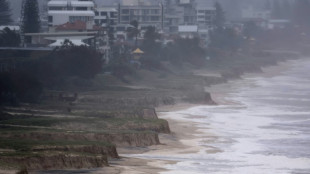 Rising oceans to threaten 1.5 million Australians by 2050: report
Rising oceans to threaten 1.5 million Australians by 2050: report
-
Kipyegon bids for fourth 1500m world gold, Wanyonyi in loaded 800m
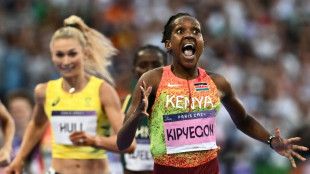
-
 'The Studio,' 'Severance' and 'Adolescence' among Emmy winners
'The Studio,' 'Severance' and 'Adolescence' among Emmy winners
-
Trump and King Charles: heads of state with opposing personalities
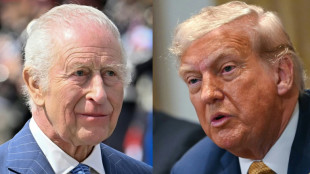
-
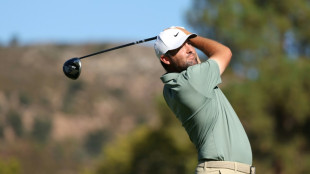 Scheffler surges to PGA Procore victory in Ryder Cup warm-up
Scheffler surges to PGA Procore victory in Ryder Cup warm-up
-
Bloody Sunday trial of British ex-soldier to open in Belfast
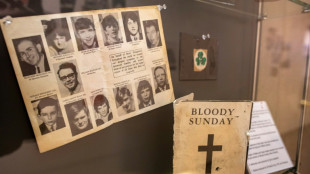
-
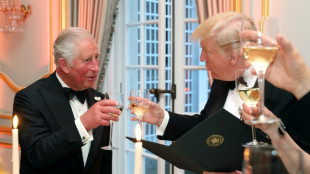 Trump heads for historic second UK state visit
Trump heads for historic second UK state visit
-
Turkey court tries case that could oust opposition leadership
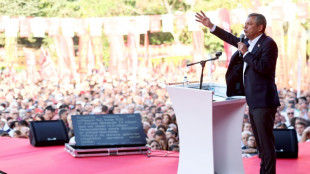
-
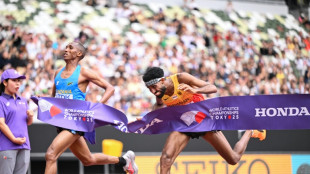 Simbu dips past Petros for world marathon gold
Simbu dips past Petros for world marathon gold
-
Mexico's macabre Island of the Dolls inspires Tim Burton and Lady Gaga
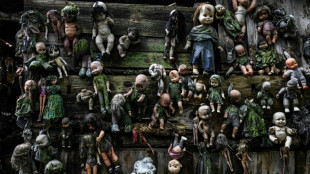
-
 Television stars shine bright on Emmys red carpet
Television stars shine bright on Emmys red carpet
-
'The Studio' claims early win as TV's Emmys kick off
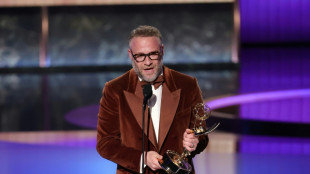
-
 Japan rips Tonga to reach Pacific Nations Cup rugby final
Japan rips Tonga to reach Pacific Nations Cup rugby final
-
Australia's ANZ bank hit with record fine over 'widespread misconduct'
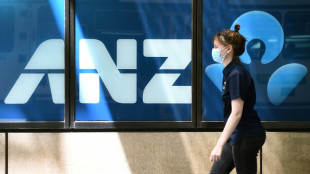
-
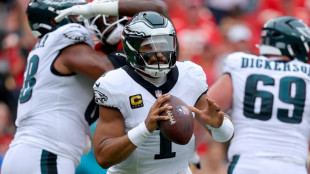 Eagles top Chiefs in Super Bowl rematch as Cowboys edge Giants in NFL thriller
Eagles top Chiefs in Super Bowl rematch as Cowboys edge Giants in NFL thriller
-
Seattle's Raleigh hits 54th homer of season for MLB marks
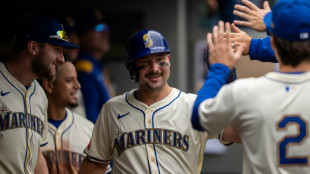
-
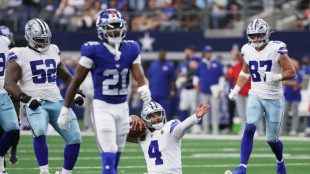 NFL Cowboys top Giants in overtime while Lions maul Bears
NFL Cowboys top Giants in overtime while Lions maul Bears
-
Trump concerned S. Korean arrests could 'frighten' investors

-
 Timeless Modric opens AC Milan account with winner against Bologna
Timeless Modric opens AC Milan account with winner against Bologna
-
Spring quick-fire hat-trick helps Racing stun Bordeaux-Begles

-
 Macau's first 'patriots' election sees low turnout
Macau's first 'patriots' election sees low turnout
-
Prince Harry says has 'clear conscience' over explosive memoir


Gene Hackman, intense, 'uncommon' everyman actor
Gene Hackman, who has been found dead in his home in New Mexico at the age of 95, was once voted as likely to flop in showbiz but instead went on to enjoy a storied, Oscar-winning career as an everyman actor who mined personal pain to give intense, edgy performances.
Hackman is perhaps best known for his portrayal of the tough and vulgar New York cop Jimmy "Popeye" Doyle in the 1971 crime thriller "The French Connection."
Its five-and-a-half-minute car chase scene -- in which Doyle crashes his way through bustling city streets, grunting, grimacing and honking as he pursues a bad guy who has commandeered an elevated train -- is the stuff of Tinseltown legend.
Hackman won his first best actor Oscar for that film. He won another golden statuette two decades later for best supporting actor for his portrayal of the brutal small-town sheriff "Little Bill" Daggett in the 1992 western "Unforgiven."
He earned three more Oscar nominations during a five-decade career in which he appeared in 80-odd films.
"He's incapable of bad work," Alan Parker, who directed Hackman in the 1988 civil rights drama "Mississippi Burning," told Film Comment magazine that year.
"Every director has a short list of actors he'd die to work with, and I'll bet Gene's on every one."
- Midwestern roots -
Hackman was a native Midwesterner, born during the Great Depression in Illinois.
He came from a broken family -- his father left when he was 13, waving enigmatically as he drove away one day. Hackman said he knew right then that the man was never coming back.
Hackman's mother died in a fire before he had established himself as an actor.
He also served an unpleasant stint in the US Marines, which he joined at 16 by lying about his age.
He used his personal turmoil as fuel to flesh out his characters.
"Dysfunctional families have sired a number of pretty good actors," Hackman told The Guardian in 2002.
Arthur Penn, who directed Hackman in "Night Moves" (1975) and "Target" (1985), called him an "extraordinarily truthful actor."
"He has the skill to tap into hidden emotions that many of us cover over or hide -- and it’s not just skill but courage," Penn said.
- 'An actor, not a star' -
Hackman was an unlikely star -- he came to acting relatively late after dabbling in a series of jobs, and only attracted attention in his 30s.
In fact after his enrollment at the Pasadena Playhouse in California in the late 1950s, Hollywood legend tells that he and a fellow student, one Dustin Hoffman, were voted the "least likely to succeed."
Later, they would pal around with Robert Duvall in New York when all three were struggling actors.
Not blessed with leading man good looks, Hackman instead drew on his talents and versatility, taking on gritty roles and delivering thoughtful, intelligent performances.
"I wanted to act, but I'd always been convinced that actors had to be handsome. That came from the days when Errol Flynn was my idol. I'd come out of a theater and be startled when I looked in a mirror because I didn't look like Flynn. I felt like him," Hackman once said.
After studying journalism at the University of Illinois, he first tried television production, before going to acting school in Pasadena.
Upon graduation, Hackman moved back to New York, where he worked off-Broadway and began to turn heads.
In 1964, he was cast on Broadway in the play "Any Wednesday," which led to a small role in the film "Lilith" starring Warren Beatty.
A few years later, Beatty was casting for "Bonnie and Clyde" and chose Hackman as Clyde's brother Buck Barrow.
That landmark 1967 film won Hackman his first Oscar nomination for best supporting actor, and put him firmly on track for stardom.
A second Academy Award nomination came for "I Never Sang For My Father" (1970), in which he played a professor who feels he has never won his father's approval.
"I was trained to be an actor, not a star. I was trained to play roles, not to deal with fame and agents and lawyers and the press," Hackman said.
Hackman notched up dozens of film credits in his career, working well into his 60s and 70s although he stayed out of the limelight, living with his second wife in Santa Fe, writing and painting. His wife was found dead with him at their home.
Into the 21st century, he starred in "The Heist" and "The Royal Tenenbaums" in 2001, the latter winning him his third competitive Golden Globe, before announcing his retirement in 2008.
"It really costs me a lot emotionally to watch myself on screen," Hackman once said.
"I think of myself, and feel like I'm quite young, and then I look at this old man with the baggy chins and the tired eyes and the receding hairline and all that."
L.Stucki--VB
